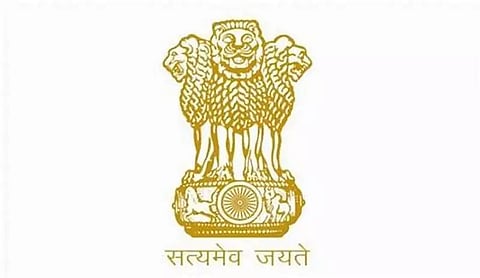
- Home
- Live Blog
- Breaking News
- Top Headlines
- Cities
- NE News
- Sentinel Media
- Sports
- Education
- Jobs

Paradiplomacy, also known as sub-national diplomacy or regional diplomacy, refers to international activities that include the engagement of sub-national entities such as states, provinces, cities, and other local governments in international relations. Since ancient times, diplomacy has been the domain of nation-states and their respective central governments. However, the term paradiplomacy involves local governments or regional powers conducting various diplomatic activities in an independent manner or in cooperation with their central power.
Key facets of paradiplomacy include autonomy, various issues and spheres, legal and political context, cooperation, and competition. Paradiplomacy reflects the growing trend of various sub-national entities seeking to assert their autonomy and engaging directly with various foreign governments, international organisations, or other sub-national entities. These activities may cover a wide range of issues and spheres, from trade missions and cultural exchange to investment promotion and environmental cooperation. The extent of paradiplomacy in which sub-national entities can engage depends on the legal and political framework of the country they are part of. Some countries have a decentralised system, and some others have a centralised system, and the system defines the extent. Another aspect is cooperation and competition. Sub-national entities may cooperate or collaborate with one another or may have some joint activities.
Traditionally perceived as a landlocked and insurgency-ridden area, the Northeast region is now witnessing a geopolitical change. Assam is becoming the epicentre of this change. The concept of paradiplomacy can apply to its engagement in international affairs. In relation to Assam, paradiplomacy might involve the state government engaging in international relations independently to some extent or in coordination with the union government. The Centre is increasingly looking at the Northeast and Assam under the ‘Act East Policy’ and because of their advantageous location as the region straddles India’s borders with Bangladesh, Bhutan, Myanmar, and China.
Assam’s notable paradiplomatic efforts include hoisting an increasing number of international delegations and hosting its first-ever global investor summit, “Advantage Assam,” in 2018 to attract foreign investments. The Government of Assam has also established the ‘Act East Policy Affairs Department’ to institutionalise its paradiplomatic efforts and assert a central role for Assam in India’s Act East policy. But the role of this department should be smoothed up. The Ministry of Development of the North Eastern Region (DONER) can also play an active role in facilitating some initiatives.
Assam hosted the Y20 Inception Meeting and Employment Working Group Meeting under India’s G20 presidency this year. The state in particular has witnessed development in various sectors in recent years, which include the expansion of several new bridges, the expansion of roads and highways, and the ongoing construction of a rail and road tunnel under the Brahmaputra. This infrastructural growth is helping Assam connect to other parts of Southeast Asia via neighbouring states and bordering countries. Through its Act East policy, the centre has in recent times focused on building regional cooperation and economic ties with the Asia Pacific using the Northeast as a medium. Some of the underway projects include the Kaladan Multi-Model Transit Transport Project and the India, Myanmar, and Thailand Trilateral Highway Project. The Kaladan Multi Model Transit Transport Project is a joint project between India and Myanmar that will open up a new corridor between India, Myanmar, and the NE states. It will boost economic growth.
The India-Malaysia-Thailand Trilateral Highway Project will connect Moreh (Manipur) in India with Mae Sot in Thailand via Myanmar. By linking other highways in other East Asian nations like Vietnam and Laos, it will also act as a booster dose for economic growth in this North East region.
With the development of infrastructure, trans-Asian railways, and rejuvenating airports, Assam, through its capital Guwahati, can reduce the distance between Delhi and the G20 economic powerhouses. Soft power diplomacy can pave the way for it. Taiwan already sees Assam Tea’ as a potential for soft power diplomacy. A major portion of the world’s largest economies lie in the Asia Pacific, including China, Russia, India, Japan, South Korea, and Taiwan. So it is needed for the government to utilise the enormous potential of Assam.
Some potential areas where Assam can engage in paradiplomacy include:
Trade and Investment: The State Government of Assam may work to attract foreign investment, promote trade partnerships, and explore opportunities for economic growth and development with other nations. This might involve participating in trade missions, international business forums, and investment conferences. Cultural Exchanges and Tourism: Assam’s government may collaborate with foreign entities to promote cultural exchanges, tourism, and people-to-people interactions. This could involve showcasing the state’s rich cultural heritage, traditions, and natural beauty to the international community.
Environmental and Regional Cooperation: Assam shares international boundaries with Bangladesh and Bhutan. The state government could engage in regional initiatives related to environmental conservation, water resource management, and cross-border cooperation for mutual benefits.
Promotion of Local Products: Assam is known for its tea production, handicrafts, and other local products, which also include GI-tagged products. Promoting and exporting all these can be done in a pragmatic way.
Assam, like other states in India, operates within the framework of the Indian federal system, where foreign policy and international relations are primary domains of the central government. However, if we go through the story behind the ratification of the historic land boundary agreement between India and Bangladesh in 2015, which was facilitated by the active involvement of the states of Assam and West Bengal, this can be seen as a bottom-up approach, where state governments were able to exert influence and help resolve a long-standing dispute between India and neighbouring states. Like some other states, Assam has also shown its interest in and has the full potential to engage with foreign entities on various matters like trade, investment, culture, tourism, etc. It can be the epicentre of paradiplomacy.